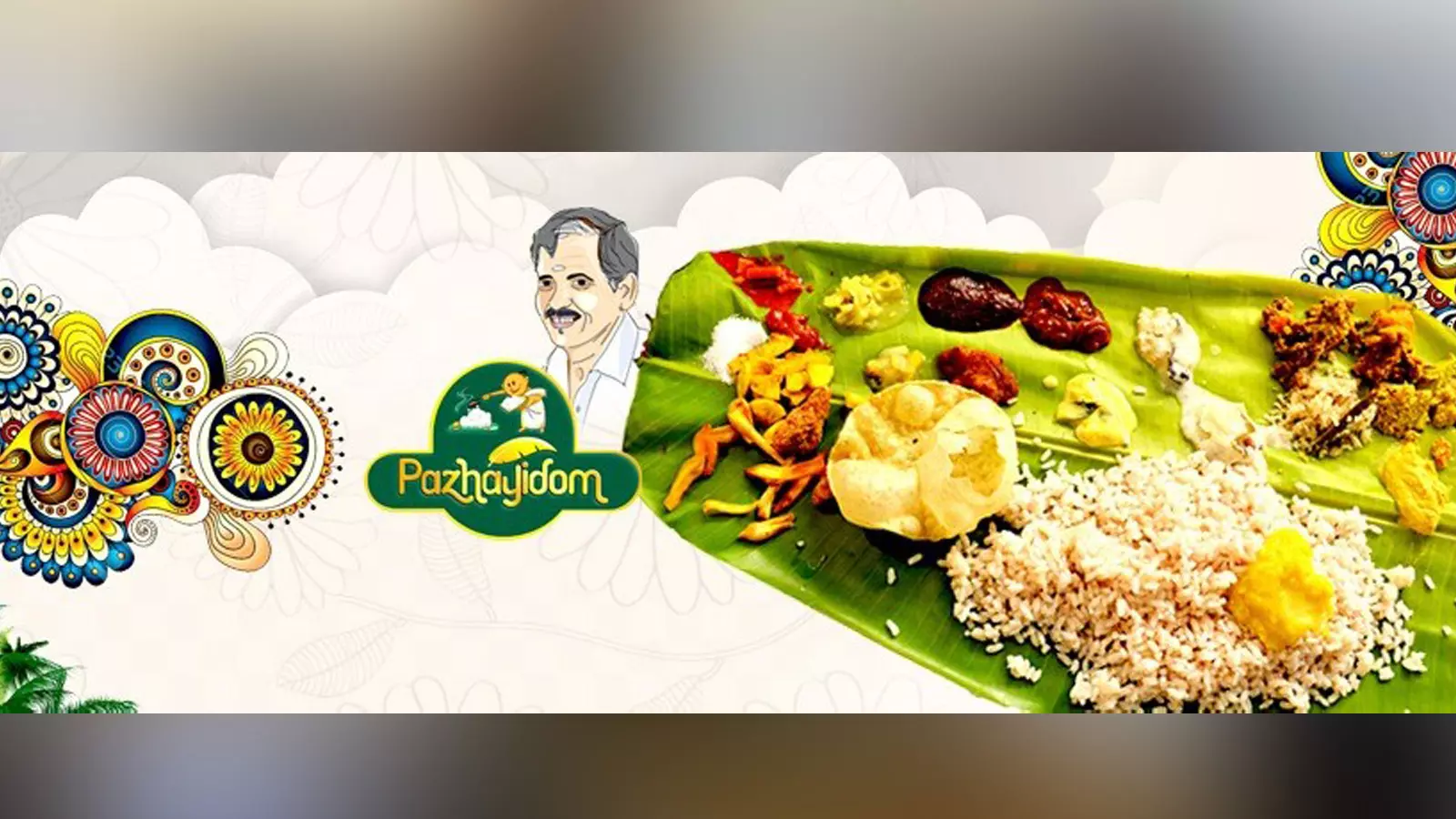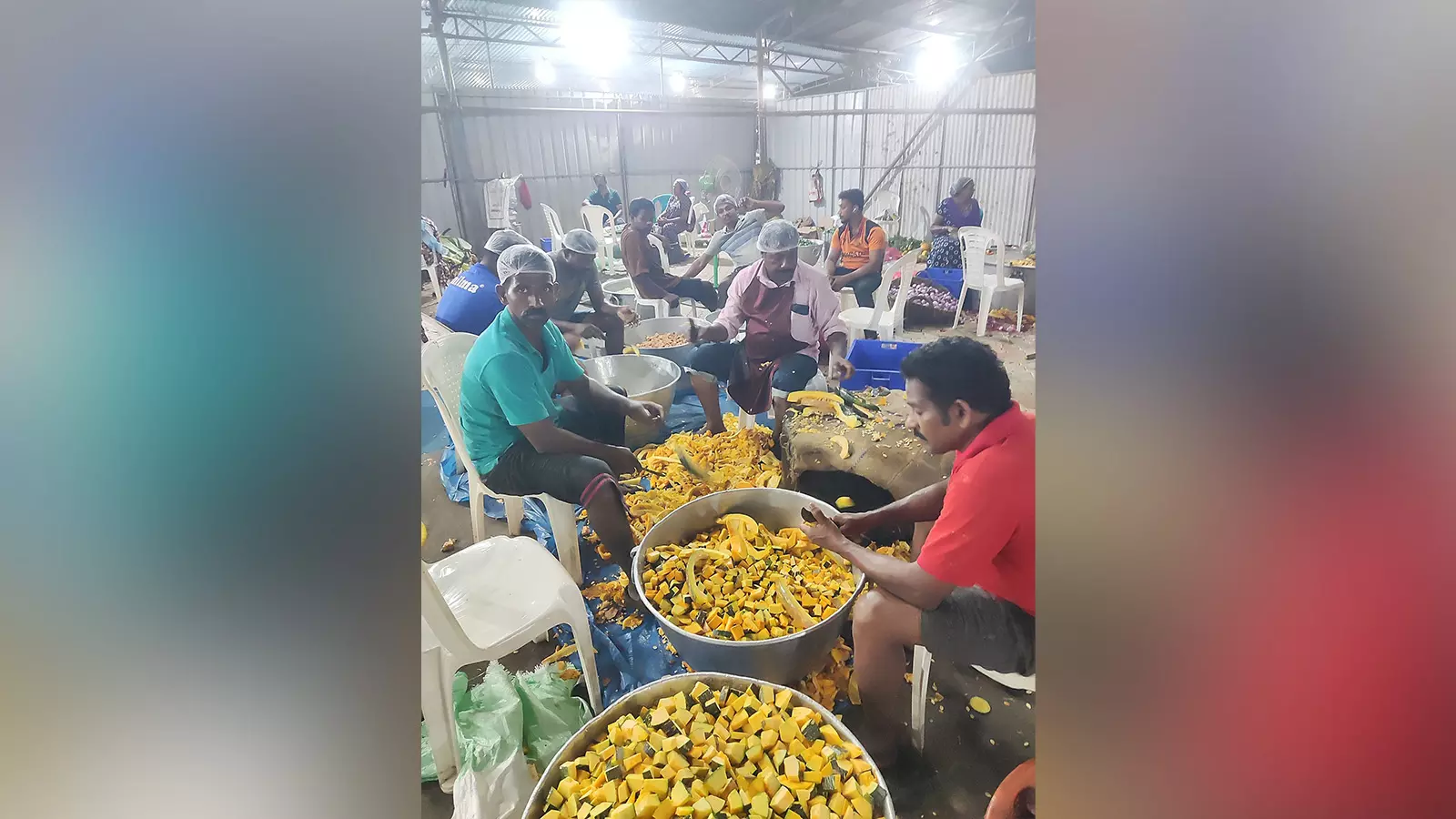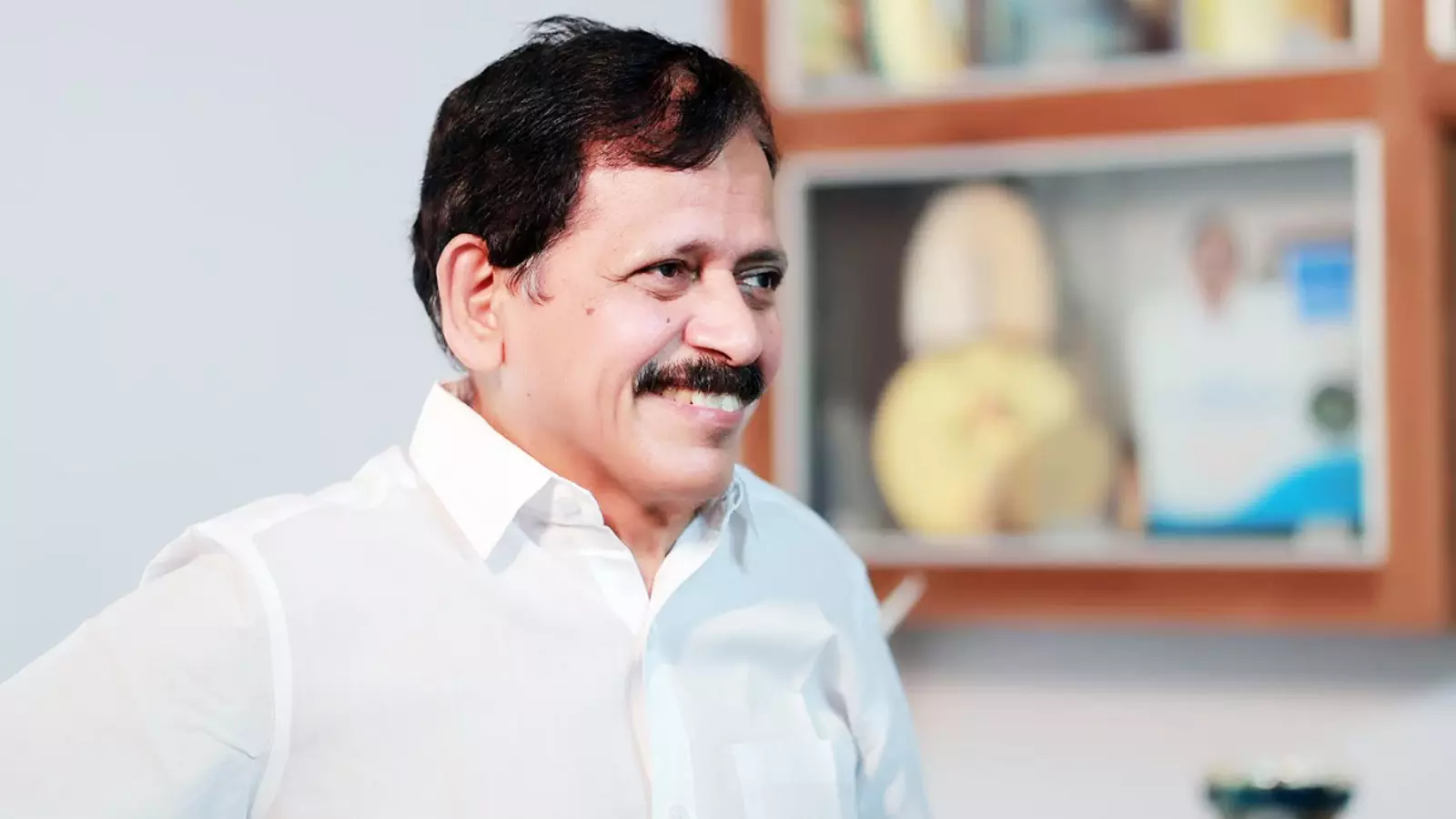
- Home
- India
- World
- Premium
- THE FEDERAL SPECIAL
- Analysis
- States
- Perspective
- Videos
- Sports
- Education
- Entertainment
- Elections
- Features
- Health
- Business
- Series
- In memoriam: Sheikh Mujibur Rahman
- Bishnoi's Men
- NEET TANGLE
- Economy Series
- Earth Day
- Kashmir’s Frozen Turbulence
- India@75
- The legend of Ramjanmabhoomi
- Liberalisation@30
- How to tame a dragon
- Celebrating biodiversity
- Farm Matters
- 50 days of solitude
- Bringing Migrants Home
- Budget 2020
- Jharkhand Votes
- The Federal Investigates
- The Federal Impact
- Vanishing Sand
- Gandhi @ 150
- Andhra Today
- Field report
- Operation Gulmarg
- Pandemic @1 Mn in India
- The Federal Year-End
- The Zero Year
- Science
- Brand studio
- Newsletter
- Elections 2024
- Events
How a veg culinary expert redefined traditional Kerala feast

In 2015, chef Pazhayidom Mohanan Namboothiri was asked whether he could quickly provide food for some 150 students who were on their way from Neeleswaram (Kasaragod) to participate in the school youth festival to be held in Thiruvananthapuram. The students from the far away districts would land up first and that’s the practice going on in the youth festivals.The kitchen as part of the...
In 2015, chef Pazhayidom Mohanan Namboothiri was asked whether he could quickly provide food for some 150 students who were on their way from Neeleswaram (Kasaragod) to participate in the school youth festival to be held in Thiruvananthapuram. The students from the far away districts would land up first and that’s the practice going on in the youth festivals.
The kitchen as part of the festival was getting ready. Pazhayidom was not new to such short notices, as he has fed crores of students during the state and district-level school youth festivals, youth athletic meets and science fests. Even as the festival committee received the students at the railway station by giving them roses in various colours, Pazhayidom finished his job in just three hours.

Pazhayidom Mohanan Namboothiri has travelled to more than 22 countries and to all the Indian states barring Jammu and Kashmir.
Despite being cooked hurriedly, the food was so delicious that after finishing their dinner, the students collected the flowers that they received and made a bouquet out of it. It was meant for Pazhayidom. “I have been to many places as a head chef, and received many accolades but this was special. It was a collection of their love and gratitude. I still cherish it,” said Mohanan Namboothiri, popularly known as Pazhayidom, the name of his ancestral house in Kurichithanam in the Kottayam district of Kerala.
The vegetarian Kerala sadya (feast) prepared by Pazhayidam is today popular across the world. He has travelled to more than 22 countries and to all the Indian states barring Jammu and Kashmir. It was the significant and consistent role that he played in preparing and serving food for students during youth festivals that made him popular. He has fed more than 2.25 crore students over the last 25 years of school youth festivals, youth athletic meets and science fests. A week ago, he successfully completed yet another assignment by providing food for students as part of the state youth festival called Kerala Kalolsavam 2025 that was held in Thiruvananthapuram.
A sadya is a combination of many delicious vegetable dishes and desserts. The first curry served is parippu (made of green gram) followed by sambar, a lentil-based stew cooked with pigeon pea and other vegetables, Aviyal (a thick stew made of more than 13 vegetables and coconut), koottu kari (made of vegetables and legumes), erissery (made of pumpkin, yam, brown cow peas and coconut), kichadi (made of cucumber, ash gourd and ladies fingers), pachadi, made with pineapple, mango or pumpkin. Thoran, another dish, prepared using cabbage, beans, yam and plantain. While kurukku kalan is popular in the erstwhile Malabar region of Kerala, pulissery is popular in the southern part of the state.
Then comes kalan and olan and the list goes on with desserts including ada pradhaman, which is made of rice flakes, coconut milk and jaggery. Even though the traditional vegetarian feast of Kerala is popular, it doesn’t have a uniform style. Dishes and desserts vary from region to region. What Pazhayidom did was to revive and customise them depending on the demand.

The kitchen set as part of the recently held state youth festival in Thiruvananthapuram.
“I worked with many senior chefs in the beginning of my career. Even though they were all good, they were not ready to make changes. They repeated the same old style. There was no innovation. Some items that they served were not good. I observed this and started making each one that served them on a plantain leaf,” he said.
Even though Pazhayidom worked with many accomplished chefs in the beginning of his career, he learnt the basic lessons from a priest at a family temple in Kurichithanam. The temple had a nama japam (chanting of names) ceremony in which some 50 people would participate. Being a close relative of the priest, Pazhayidom was asked to help him in preparing food for them. He agreed. “I learnt the most important lessons of cooking from the tiny hall of the temple. The knowledge that I got from here helped me a lot. They are inside me and you can still taste it through the feast that I make for you,” said Pazhayidom, who had a miserable post-college phase despite being a post-graduate in physics.
How did he leave physics, one of the most demanding science subjects in the 1980s? “A prominent institution asked me to give Rs three lakh to construct a science block. If I had given the money, I could have got the job. I didn't have the money because I come from a poor family of Namboothiris,” he said.
He then had a difficult time. Some small businesses that he started failed. Lack of money and support disturbed him a lot. He lost hope and wanted to end his life. But there was a ray of hope in the form of a book – a novel written by renowned Malayalam writer MT Vasudevan Nair (who died on December 25 at the age of 91). He saw an advertisement that the novel called Randamoozham would be serialised in the weekly called Kalakaumudi. Being a voracious reader, Pazhayidom was fond of MT Vasudevan Nair. The book provided relaxation to the disrupted and exhausted young man.
“I experienced a great feeling when I started reading the first episode of Randamoozham. It was not only the narration that I liked, but also the accompanying drawings done by artist Namboothiri. I started waiting for the next episode and it continued for a year. It was a difficult time, but I survived mainly because of this book and the one-year interval that it gave me. The book gave me solutions to a new beginning in life,” said Pazhayidom, who once mentioned the incident to the novelist and he wrote about it in one of his books later.
Born in Kurichithanam in 1956, Pazhayidom has his own principles when it comes to cooking and selection of vegetables. He follows only natural methods. You can’t find any artificial taste-makers in the dishes that he makes. And his style is based on six main tastes mentioned in the traditional texts. They are sweet, sour, salty, bitter, pungent and astringent. “We should not return to nature as someone said because it is our home. We are already there. We should take care of it. One’s attachment with nature plays a significant role in it. I follow only natural methods in cooking and I have no shortcuts,” said the 68-year-old chef and culinary expert. Pazhayidom was honoured with the Pachaka Shreshta award instituted by the Kerala government in 2018.

Pazhayidom follows only natural cooking methods.
Each kitchen is a learning centre for him. Pazhayidom is known for making 100 types of payasam (kheer). “I learn these things by regular practice and innovation. I would try different methods repeatedly until I am satisfied. It is challenging,” said Pazhayidom, who shares his cuisines through videos and reels. A couple of years ago in Bahrain, Pazhayidam became a judge for a payasam-making competition with two other chefs from star hotels. Someone made a payasam using chillies. Pazhayidam didn’t give him a mark but the other two chiefs praised the chilli payasam a lot. “Payasam has its own set of rules. The chilli payasam was made using the opposite ingredients. I don’t support the use of opposites in cooking. They are harmful to us,” he added.
It was in 2000 that Pazhayidom first started preparing food for a school youth festival. “By that time, I was able to cook and serve food for a crowd of 2000 people. It all started with just 500 people. But the school youth festival was a different zone that I never experienced. I was confident and it worked out well,” said Pazhayidom, who is celebrating the silver jubilee of his association with school youth festivals next month.
Consistency plays a major role when it comes to cooking, particularly in a state like Kerala where many culinary styles are followed depending on the regions. In a normal meal, there will be 12 items including rice and one payasam. The second one will have 23 items with two payasam. The premium feast will have 48 items. “Each region is different. I am from Kottayam. When someone comes from Kozhikode or Kasargod, I will first ask them what food they want to serve. If they want a mixture of two styles, it is easy for us to make. In some cases, we have to go by the typical style of that particular region,” he said. Even though Pazhayidom is a vegetarian chef, he believes that one can eat what one likes. “If people like non-veg food, let them eat it. But they should cook it properly. The shawarmas that you get today are dangerous. It killed many people. So be careful about what you choose,” he said, adding that a vegetarian food is safe compared to a non-vegetarian one.
From one kitchen to the other, it has been a long journey for Pazhayidom. But he is not tired. His son Yadu Pazhayidom takes a different route. He opens restaurants in the towns of Kerala through which he serves authentic feast in the name of the master chef. Pazhayidom has no such big business plans. “I am happy with what I achieved. I now want a peaceful life. My ambition is to work with NGOs like Akshaya Patra Foundation which serves food for thousands of children,” he said. “A writer can quit writing and a singer can stop singing. But a cook can never quit cooking. It is by providing food that he reaches his god,” he added.
